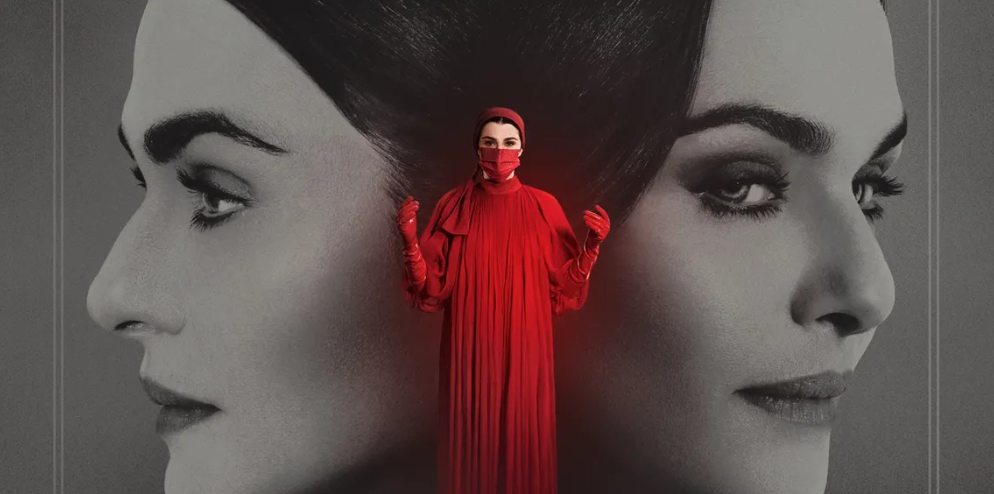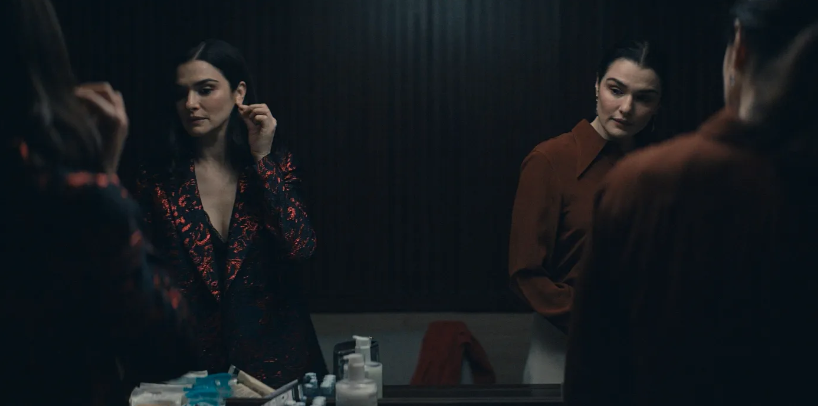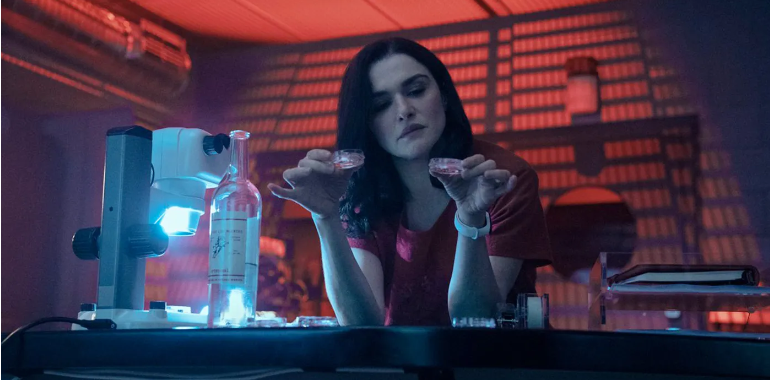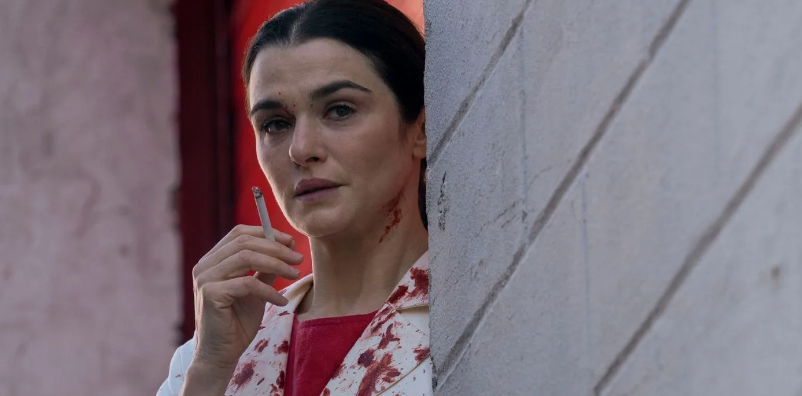[Editorial] Dead Ringers (2023) and Bodily Autonomy
Spoilers ahead for Dead Ringers (2023)
What any good remake or reboot should do is present the original concept in a way that captures the central idea while integrating new ideas and adapting it to the current audience as well as newcomers to the source material. It should not just be with one talking point such as, casting a trending TikToker. Or even worse, spit back the exact same thing but translated directly into English if it is an international adaptation and thus, lose all the nuance and heart that made it already a story worth seeing merely a few years earlier.
It should have something more to add to the conversation it started by existing in the first place and it needs an evolution to make it a meaningful new vehicle rather than a revisit that will inevitably fail because it took on something that already established itself the first time around. Alice Birch’s Dead Ringers, now streaming on Amazon Prime, adapted into a miniseries from the David Cronenberg cult film of 1988, both based on the novel Twins by Bari Wood and Jack Geasland, may have that subversive twist—portraying the twin gynecologists at the center of the story— now as women played by Rachel Weisz in the role/s made famous by Jeremy Irons—but beyond focusing on the protagonists as their own worst enemies as the original does too, it introduces a bigger villain in the form of healthcare systems and the insidious ways those who wield the money hold the true power in controlling the way we are born, live, and ultimately die.
LISTEN TO OUR HORROR PODCAST!
Beverly and Elliot Mantle are hotshot gynecologists, and the series echoes the film in how the personalities manifest in the more “masculine” and “feminine” names. Whilst Jeremy Iron’s Beverly was the quieter more vulnerable twin who fell in love and wanted to make a life away from his brother, Elliot is still the hard-partying loudmouth sister who can’t bear to let her twin have anything she can’t lay claim to as well. Beverly and Elliot both want a special medical center for pregnant women. They want to provide a bespoke service that puts the bodies carrying babies first, not the babies. The gaps in the medical system are rather unsubtly highlighted in the first episode where we see a Black woman who, after just giving birth, is ignored when asked for help mitigating her pain. She insists it’s not the usual pain, she’s had a C-section before and can tell the difference, but in the end dies of massive internal bleeding. A second woman has a stillborn because she was too frightened to come to the hospital when labor pains began and when she did it was too late. Beverly rages against a system that bullies, frightens, and kills the people that it is supposed to serve but ultimately never puts their needs first. While Elliot is all confidence and swagger, Beverly is never surer of herself than when standing up for others. It is here the central point of Dead Ringers is brought into focus; a woman’s body is never her own. It is the carrier for other bodies, the receiver of abuse and neglect, and never counted as the individual. The fact that the two protagonists’ rail against this notion but still physically and often mentally seem to share a body is the ongoing theme. When Beverly sees Genevieve (Britne Oldford) for the first time in her office and feels an immediate attraction, it’s her sister that seduces her. “I can get her for you,” Elliot says. And she does. As much as Beverly will fight for women’s autonomy and the rights to their own bodies, hers will never be wholly her own.
The sisters can’t just embark on their dream alone, though, and the bottom line is money. Money is needed to receive care, money is needed to push forward, and money is needed to make the medical center the twins dream of. Enter Rebecca Parker (Jennifer Ehle), a Sackler-esque investor, her family infamous for creating the opioid crisis, and her trophy partner Susan (Emily Meade). “I love babies,” gushes Susan. “And I love women.” Susan is all Southern charm and big smiles and is ready to invest in the twins. She can’t have children of her own we find out later, because of a medical condition, but it’s more likely the reason she gives later on about how Rebecca tends to drop women if their bodies change like how she dumped her previous partner after she had kids. Essentially, once a woman is past her prime, she is no longer worthy. The age difference between them highlights this charming fact. The center requires sixteen million dollars of funding to start. It’s nothing to Rebecca but she demands to be wooed. She wants flash, she wants science, she wants technology. A medical center for pregnant women is just too boring for her. And that is exactly how the world functions. Beverly snaps that this is not about “Sweet, soft, hopeful babies. Radical change does not happen overnight but that is not how change for women works.” If they do invest in them, that is what they will be funding but again, who puts the worth of women and slow, lasting evolution of their care at the foremost? Not even women. Not even women who have the means, to whom a measly sixteen million dollars would be a drop in the ocean. Why? Because what are the returns on an investment on women? Beverly wants to make the center accessible to all. Rebecca counters that charity is nice and all but isn’t that about making oneself feel good? She upholds the system that benefits from directly blocking accessibility and as much control as she likes to feel she has, that control comes in the form of subjugating others. Including women. Especially women. That is how her family got where it is, after all. Elliot can see beyond Beverly’s idealism. She’s ready to play the game of who in the room can say the most shocking thing but she has the hook for all these rich, callous people. Rich, callous and aging people, that is; infertility and menopause.
The second episode introduces Rebecca’s board and the people that Elliot and Beverly have to win over to get their money. There’s the wellness guru with her horde of little blonde children, “What a nice little Aryan cult,” Elliot jokes. There’s the niece whose dad was directly responsible for the opioid crisis who states, “In the end, he made a product that people just wanted more of. It’s a great product.” There’s the lawyer, a distinctly older woman whose only job is to control the purse strings. Here is where the show really makes a statement on the intersection of women’s declining rights over their own bodies and how it directly ties in with rising right-wing fascism, especially when it’s disguised by its representatives; the so-called radical, progressive free-thinkers who want to change the world but will really spend billions just to feed their own egos and support systems that protect only themselves. These people all consider the twins’ proposal “boring” an actual quote, until the topic of infertility comes up. Would the center focus on that? Could it? Could they direct research into that? Into menopause, into literally delaying menopause because again, what’s a woman worth once her body’s function is up? That’s where the money is, the lawyer states. But that’s also where immortality and the baby-making machines are. Beverly demurs once more. Of course, they will have research dedicated to that but that is not the real purpose- until she’s cut off by Elliot. Elliot is the one who dazzles them with all they could do beyond the FDA’s reach. Implant a 20-year-old’s uterus into a 50-year-old and delay menopause! Possibly eradicate it altogether! Why try to slow the aging process when you can work on slowing it.
LISTEN TO OUR HORROR PODCAST!
Here’s also the cross-section of science versus the body that Cronenberg so adeptly does, but in this incarnation of Dead Ringers, pushed to the limits of female function. Elliot may be the outspoken fire-starter, but she does go beyond the rules of regulated medicine throughout the series to play God. Embryos cannot be grown longer than two weeks in a lab, but at one point she grows one to four weeks then implants it into a woman who kept having miscarriages to see if this could be a solution. She does not miscarry, but does go into labor with the older embryo at week 24, much too early to give birth. The baby survives and is lauded as a miracle because it does not have any of the issues a baby born so early would have. But of course, we know it’s actually at week 28 though no one else does. In a later episode, Susan’s father, another woman's doctor, taps into it. “You’ve done something very clever haven’t you,” he whispers to her. And it’s not the brilliance of her science and ability, it’s the implication.
A woman serves to give birth and be a mother. The latter is incidental even as Rebecca scoffs at someone calling her one, “I don’t know what that means.” But woman as the birther is the very basest form of entrapment and loss of identity. Disguised behind the honor of being called a mother, at least Rebecca is honest about that. It’s why Elizabeth Holmes who, after failing spectacularly in her scientific entrepreneurial endeavors and defrauding the country, has now assumed the role of trad-wife and has been popping out babies quite regularly before her sentencing. It’s why there’s been an uptick in the media focusing on stories like “The elite couple breeding to save mankind,” to force the idea that it’s our responsibility to have children and populate. Not to mention the eugenics of it all. Fascism and right-wing sentiment relies on subservience; taking away bodily autonomy and pressuring women into the domestic and supportive roles build the foundation. Plus, it’s very lucrative. Rich, white old women are sure to pay to have the skin of their youth if it just means simple procedures like harvesting a teenager’s ovarian tissue. Elliot gets her sister the center she always wanted. It’s blood money and it may be trying to do good but not in the way she ever wanted.
The second center opens in Alabama, in Susan’s hometown. The inaugural patient is her sister, pregnant with quadruplets that Elliot will operate on because at this point Beverly herself is heavily pregnant. Also with twins. A reporter accompanies them on the trip for a fluff piece, but he pokes at their sensitive spots. He asks them why here, why so soon after the first center. Beverly insists that was the aim; to build these centers everywhere and to bring the proper care to women who need it. Alabama has the sixth highest pregnancy-related mortality rate in the country. The reporter calls them white knights there to save the poor folk and when Beverly fights that comment, he says they’re there to serve the rich white women while the Black folk watch. Beverly still disagrees but that is exactly why they’re there. Susan’s family lives on a sprawling estate, almost certainly a former plantation. Her father, Marion, the only man among six daughters and his mother, rules as the beloved patriarch. A family doctor who just happened to stumble into women’s medicine. But even when the patient is a rich, doted on white woman, her needs are not what’s important. Every time she, Florence, is asked how she is feeling (by only the Mantles, no one else), she parrots that she should not complain, she is so happy, she is so blessed. The woman has four to term babies inside her and she is not allowed to show her discomfort or worries. She just has to be thankful she can do this for her family. It’s obvious it’s her father who is most excited about the birth in the way he caresses the almost monstrously large belly she totes around, and in the way he directs Beverly and Elliot to examine her right there in the living room. We never see Florence’s husband throughout, which with her father’s closeness allows us some uncomfortable connections. Which only serves the idea of expanding the family and gene purity, really. Twins run in Marion’s family, isn’t that exciting!
WATCH HORROR MOVIES WITH US!
Marion understands the implications of what a 24-week-old healthy delivery means. “Imagine you can save a baby at 14, 15, 16 weeks,” he marvels. The reporter voices the obvious concern, what about abortion? Where is the line between saving a pregnancy and terminating? But that’s the crux isn’t it? When all fetuses can be saved, there is no abortion. There is no freedom of choice. Marion further muses on the history of their work because while he courts the idea of their “practice,” Beverly finds it utterly distasteful that he would state it that way. Like experimentation. But that’s what we do, he insists. “Your profession is a verb.” He tells the story of a girl in the 1840s whose pelvis was so badly disfigured from rickets that it was impossible for her to give birth. Three days she labored but the baby was stillborn. But she and the doctor worked together and through thirty procedures, with no anesthesia, they fixed her condition and set some of the practices of gynecology for centuries to come. This isn’t true of course. We find through a hallucination of Beverly’s as she wanders the house at night that the girl was in fact a seventeen-year-old enslaved girl who was forced to undergo these procedures without anesthesia despite the fact that it was readily available at the time. The awards and names and honors were bestowed on the doctor. Everything about the girl, including her name, has been lost to time. This is the story of women, yes, but it’s the story of Black women especially. But what’s important to Marion the man? “Tell me Elliot, how did you make that woman who was once barren so fecund?”
Indeed, the same can be said about Beverly, who is nearly to term with the children of her estranged girlfriend. The one her sister got for her but couldn’t keep because her sister would not then go away. The longed-for children she always wanted and then when she was finally pregnant, trapped her in her own mind and body. When Elliot botches Florence’s surgery and begins her spiral down, Beverly comes into her own. She reunites with Genevieve by cutting Elliot out of her life. Rebecca, who always preferred Elliot but will settle for the easily manipulated sister, pushes her career further. She finally has everything she ever dreamed of but is still not happy. Because while she thought she was doing everything for her sister, it was really the other way ‘round. “I don’t think I’m capable of being happy,” she says tearfully to her sister after their long separation, standing in the lab of the center Elliot got for her, in front of the babies she grew for her when she was unable to get pregnant for so long. Beverly just does not fit into the parameters of her life and Elliot does everything so much better, so effortlessly. She is better at Beverly’s life than Beverly is. “I have to climb inside of you now,” she murmurs and relinquishes her life to her sister. After removing the twins via C-section, Elliot lets Beverly bleed out on the table and takes her place, making an identical scar on her abdomen.
Everything Beverly wanted was achieved either through her sister’s machinations or warped through the lens and influence of the people who gained control over her. She fell in love and wanted children? Her sister first seduced Genevieve and stood in for her when she couldn’t be the social butterfly. Create a bespoke experience for pregnant women because of her mantra, “pregnancy isn’t a disease?” Birthing center cash cows all over the States sprouting up like infections while she’s firmly under Rebecca’s thumb and made to publicly denounce her sister and all her accomplishments. And so, she gives up her body because it no longer belongs to her. She exists as Beverly still but as the one everyone else has shaped and that Elliot can be better at. She has no identity and the last thing she can do is deliver her babies.


![[Ghouls Podcast] Maniac (2012) with Zoë Rose Smith and Iona Smith](https://images.squarespace-cdn.com/content/v1/5fe76a518d20536a3fbd7246/1696356006789-NYTG9N3IXCW9ZTIJPLX2/maniac.jpg)
![[Ghouls Podcast] Ghouls Watch: Bucket List of the Dead, Blood Drive, Candy Land & more](https://images.squarespace-cdn.com/content/v1/5fe76a518d20536a3fbd7246/1696261000263-58VQFOVWPE363OFGP7RF/GHOULS+WATCH.jpg)
![[Ghouls Podcast] Tender Is The Flesh with Zoë Rose Smith, Bel Morrigan and Liz Bishop](https://images.squarespace-cdn.com/content/v1/5fe76a518d20536a3fbd7246/1693769261264-MS4TS4Z4QC1N15IXB4FU/Copy+of+%5BJuly%5D+Antiviral%2C+possesoor+and+infinity+pool.jpg)
![[Ghouls Podcast] Antiviral, Possessor & Infinity Pool with Zoë Rose Smith, Amber T and Iona Smith](https://images.squarespace-cdn.com/content/v1/5fe76a518d20536a3fbd7246/1691238787263-XYRKXW2Z7RWI9AY2V2GX/%5BJuly%5D+Antiviral%2C+possesoor+and+infinity+pool+%281%29.jpg)
![[Ghouls Podcast] Ghouls Watch: Body Horror Recommendations](https://images.squarespace-cdn.com/content/v1/5fe76a518d20536a3fbd7246/1691238687847-L9U434I1U4HZ3QMUI3ZP/%5BJuly%5D+Ghouls+Watch+-+Website+%281%29.jpg)
![[Ghouls Podcast] The Last House on the Left (2009) with Zoë Rose Smith and Jerry Sampson](https://images.squarespace-cdn.com/content/v1/5fe76a518d20536a3fbd7246/1687863043713-54DU6B9RC44T2JTAHCBZ/last+house+on+the+left.jpg)
![[Ghouls Podcast] Ghouls Watch: Bones and All, Suitable Flesh, The Human Centipede & more](https://images.squarespace-cdn.com/content/v1/5fe76a518d20536a3fbd7246/1687855203348-7R2KUSNR6TORG2DKR0JF/%5BJune%5D+Ghouls+Watch+-+Website.jpg)
![[Ghouls Podcast] 3 Original vs. Remake Horror Films with Rebecca McCallum & Kim Morrison](https://images.squarespace-cdn.com/content/v1/5fe76a518d20536a3fbd7246/1685286663069-0Q5RTYJRNWJ3XKS8HXLR/%5BJune%5D+Original+vs.+Remake+Horror+Films.png)
![[Ghouls Podcast] Ghouls Watch: The Devil’s Candy, Morgana, Dead Ringers & more](https://images.squarespace-cdn.com/content/v1/5fe76a518d20536a3fbd7246/1685284429090-5XOOBIOI8S4K6LP5U4EM/%5BMay%5D+Ghouls+Watch+-+Website.png)
![[Ghouls Podcast] The Bay (2012) with Ariel Powers-Schaub & Amber T](https://images.squarespace-cdn.com/content/v1/5fe76a518d20536a3fbd7246/1684751617262-6K18IE7AO805SFPV0MFZ/The+Bay+website+image.jpg)
![[Ghouls Podcast] The Ruins (2008) with Ash Millman & Zoë Rose Smith](https://images.squarespace-cdn.com/content/v1/5fe76a518d20536a3fbd7246/1684076097566-BE25ZBBECZ7Q2P7R4JT4/The+Ruins.jpg)
![[Ghouls Podcast] Picnic at Hanging Rock (1975) with Zoë Rose Smith & Rebecca McCallum](https://images.squarespace-cdn.com/content/v1/5fe76a518d20536a3fbd7246/1682536446302-I2Y5IP19GUBXGWY0T85V/picnic+at+hanging+rock.jpg)
![[Ghouls Podcast] Ghouls Watch: Deathproof, Child’s Play, Ghostwatch & more](https://images.squarespace-cdn.com/content/v1/5fe76a518d20536a3fbd7246/1682447065521-DWF4ZNYTSU4NUVL85ZR0/ghouls+watch.png)
![[Ghouls Podcast] 5 Coming-of-Age Horror Film Recommendations](https://images.squarespace-cdn.com/content/v1/5fe76a518d20536a3fbd7246/1681418402835-EMZ93U7CR3BE2AQ1DVH4/S2+EP5.png)
![[Ghouls Podcast] Psychotic Women in Horror with Zoë Rose Smith & Mary Wild](https://images.squarespace-cdn.com/content/v1/5fe76a518d20536a3fbd7246/1678635495097-X9TXM86VQDWCQXCP9E2L/Copy+of+Copy+of+Copy+of+GHOULS+PODCAST+THE+LOVED+ONES.jpg)
![[Ghouls Podcast] Good For Her Horror Film Recommendations](https://images.squarespace-cdn.com/content/v1/5fe76a518d20536a3fbd7246/1678634497037-W441LL37NW0092IYI57D/Copy+of+Copy+of+GHOULS+PODCAST+THE+LOVED+ONES.jpg)
![[Ghouls Podcast] Ghouls Watch: Severance, Run Sweetheart Run, Splice & more](https://images.squarespace-cdn.com/content/v1/5fe76a518d20536a3fbd7246/1677589685406-YZ9GERUDIE9VZ96FOF10/Copy+of+GHOULS+PODCAST+THE+LOVED+ONES+%281%29.jpg)
![[Ghouls Podcast] Nekromantik with Zoë Rose Smith & Rebecca McCallum](https://images.squarespace-cdn.com/content/v1/5fe76a518d20536a3fbd7246/1677422649033-Z4HHPKPLUPIDO38MQELK/feb+member+podcast.jpg)
![[Ghouls Podcast] The Loved Ones (2009) with Liz Bishop](https://images.squarespace-cdn.com/content/v1/5fe76a518d20536a3fbd7246/1676369735666-56HEK7SVX9L2OTMT3H3E/GHOULS+PODCAST+THE+LOVED+ONES.jpg)
![[Ghouls Podcast] Terrifier (2016) & Terrifier 2 (2022) with Janine Pipe](https://images.squarespace-cdn.com/content/v1/5fe76a518d20536a3fbd7246/1674478017541-0DHH2T9H3MVCAMRBW1O1/_PODCAST+NO+IMAGE+2023+EP+4+%282%29.jpg)
![[Ghouls Podcast] Final Destination 5 & Wrap-up with Ariel Powers-Schaub & Iona Smith](https://images.squarespace-cdn.com/content/v1/5fe76a518d20536a3fbd7246/1672841326335-WER2JXX7WP6PO8JM9WB2/PODCAST+BONUS+2023+%284%29.jpg)
![[Ghouls Podcast] Final Destination 3 & 4 with Ariel Powers-Schaub & Iona Smith](https://images.squarespace-cdn.com/content/v1/5fe76a518d20536a3fbd7246/1672841151148-U152EBCTCOP4MP9VNE70/PODCAST+BONUS+2023+%283%29.jpg)
![[Ghouls Podcast] Krampus (2015) with Megan Kenny & Rebecca McCallum](https://images.squarespace-cdn.com/content/v1/5fe76a518d20536a3fbd7246/1672839790368-VYX6LIWC5NVVO8B4CINW/_PODCAST+NO+IMAGE+2023+EP+17.jpg)
![[Ghouls Podcast] Soho Horror Film Review with Hannah Ogilvie & Caitlyn Downs](https://images.squarespace-cdn.com/content/v1/5fe76a518d20536a3fbd7246/1672840392291-XQGQ94ZN9PTC4PK9DTN1/_PODCAST+NO+IMAGE+2023+EP+16.jpg)
![[Ghouls Podcast] Final Destination 1 & 2 with Ariel Powers-Schaub & Iona Smith](https://images.squarespace-cdn.com/content/v1/5fe76a518d20536a3fbd7246/1672841181605-5JOOW88EDHGQUXSRHVEF/PODCAST+BONUS+2023+%282%29.jpg)
![[Ghouls Podcast] The Borderlands (2013) with Jen Handorf](https://images.squarespace-cdn.com/content/v1/5fe76a518d20536a3fbd7246/1672839985316-KPLOVA9NGQDAS8Z6EIM9/_PODCAST+NO+IMAGE+2023+EP+15.jpg)
![[Ghouls Podcast] Soho Horror Film Preview with Hannah Ogilvie & Caitlyn Downs](https://images.squarespace-cdn.com/content/v1/5fe76a518d20536a3fbd7246/1672840411619-IP54V5099H6QU9FG4HJP/_PODCAST+NO+IMAGE+2023+EP+14.jpg)
![[Ghouls Podcast] Halloween Special: 5 Horror Films to Watch This Halloween with Joshua Tonks and Liz Bishop](https://images.squarespace-cdn.com/content/v1/5fe76a518d20536a3fbd7246/1672840351086-2AWFIS211HR6GUY0IB7I/_PODCAST+NO+IMAGE+2023+EP+13.jpg)














![[Ghouls Podcast] Horror Literature with Nina Book Slayer & Alex Bookubus](https://images.squarespace-cdn.com/content/v1/5fe76a518d20536a3fbd7246/1672840273346-ASHBRDHOKRHMGRM9B5TF/_PODCAST+NO+IMAGE+2023+EP+12.jpg)
![[Ghouls Podcast] Alien with Tim Coleman and Rebecca McCallum](https://images.squarespace-cdn.com/content/v1/5fe76a518d20536a3fbd7246/1672839878802-LR40C39YGO3Q69UCCM62/_PODCAST+NO+IMAGE+2023+EP+11.jpg)


![[Editorial] 9 Essential Hagspolitation Horror Films and Where to Stream Them](https://images.squarespace-cdn.com/content/v1/5fe76a518d20536a3fbd7246/1770475320934-ABFCNG7QZCG95DHZW2TH/Hagsploitation+list.jpeg)
![[Editorial] Interview with Alex Phillips on Anything That Moves (2025)](https://images.squarespace-cdn.com/content/v1/5fe76a518d20536a3fbd7246/1771888581627-ETD2CGGAHXWT6LOGGSEZ/anything-that-moves-still-siteweb-730x304.jpg)
![[Editorial] 7 Valentine's Day films for the horror lover in your life](https://images.squarespace-cdn.com/content/v1/5fe76a518d20536a3fbd7246/1771008023919-TKX6A1Y1GKGQ20ONPNYD/nekromantik.jpg)
![[Editorial] Seven Horror Hits That Haunted Our Hiatus](https://images.squarespace-cdn.com/content/v1/5fe76a518d20536a3fbd7246/1769674801188-7W482NENPO0GN4CDHV5N/7+HORROR+HITS+HIATUS.webp)
![[Editorial] Oscar Nominations 2026: Where to stream all the horror picks](https://images.squarespace-cdn.com/content/v1/5fe76a518d20536a3fbd7246/1769113319180-4INRRNMZK4DZLHRSUXX5/rev-1-GRC-TT-0026r_High_Res_JPEG-1024x372.jpeg)
![[Editorial] Soho Horror Film Festival: Interview with Aimee Kuge on Cannibal Mukbang](https://images.squarespace-cdn.com/content/v1/5fe76a518d20536a3fbd7246/1701808004722-9M8SZ2UXY52QBQBR4NTI/img20230818_15150780.JPG)
